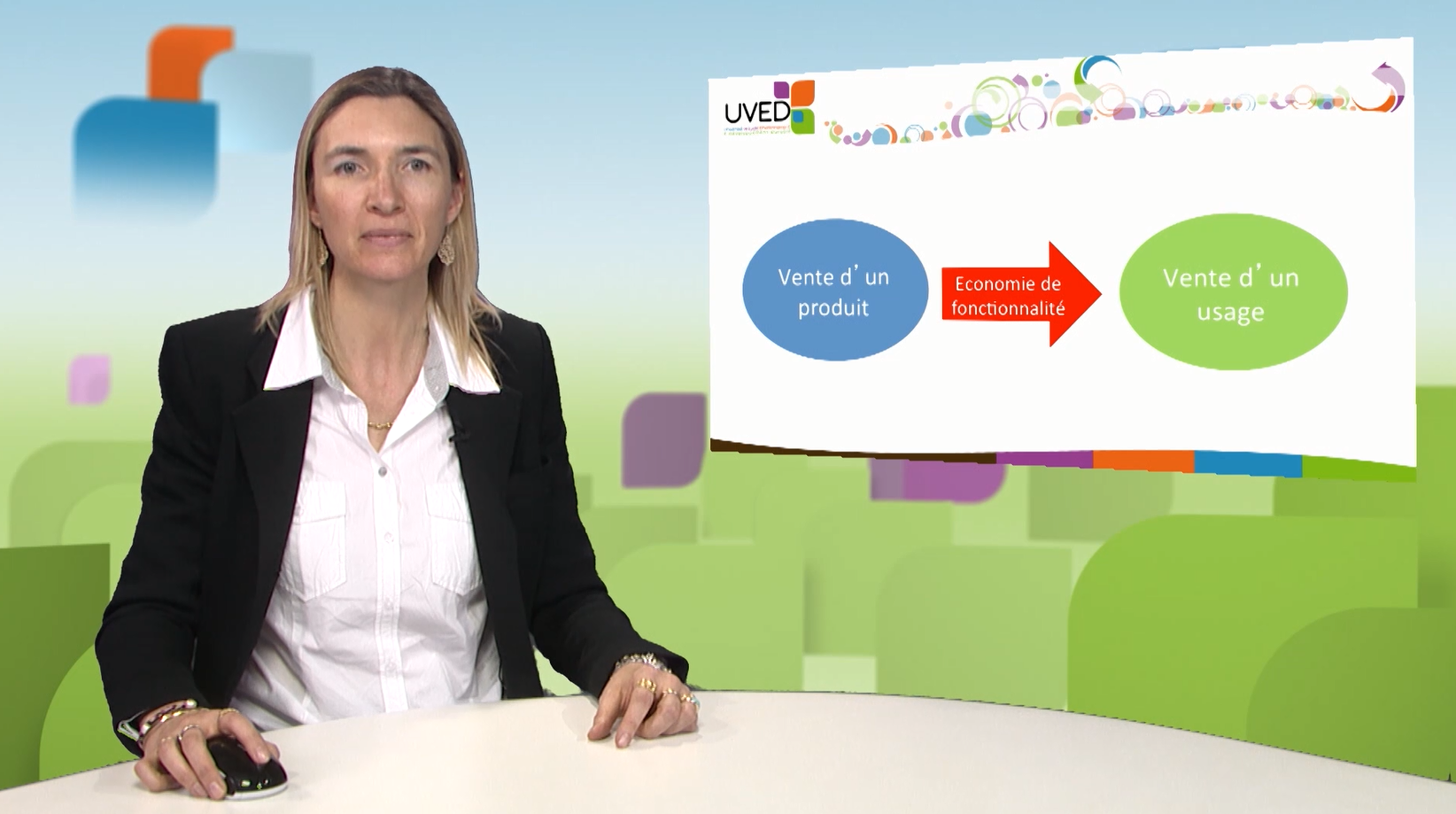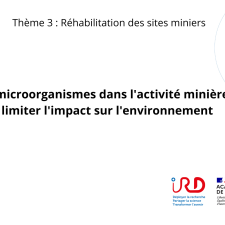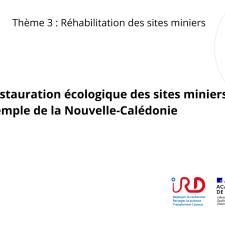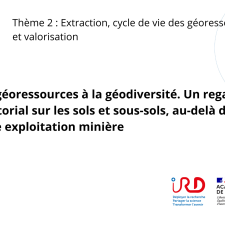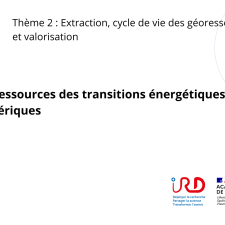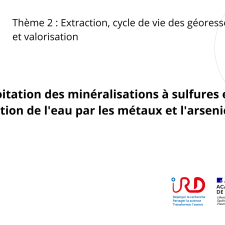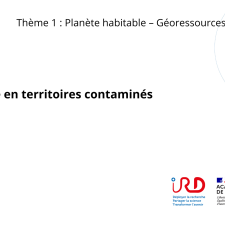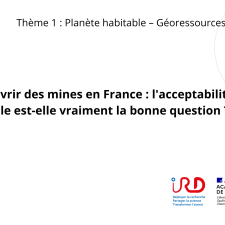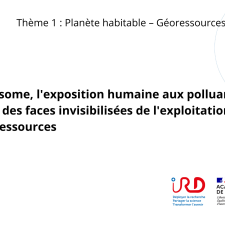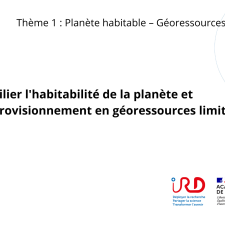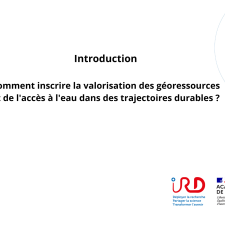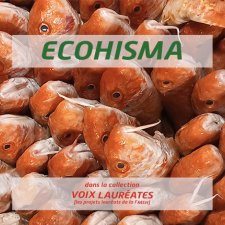Notice
The key principles of functionality-based economy
- document 1 document 2 document 3
- niveau 1 niveau 2 niveau 3
Descriptif
Béatrice Bellini, Lecturer at the University of Paris Ouest Nanterre La Défense, proposes a definition of the economics of functionality, and situates this model in a historical perspective.
Dans la même collection
-
Duty of care and extended value chain to achieve responsible management
BelliniBéatriceIn this video, Béatrice Bellini, a lecturer at the University of Paris Nanterre, explains what the notion of extended value chain is, which is part of recent regulatory developments such as, in France
-
Planned obsolescence: theory, challenges and case studies
AurezVincentIn this video, Vincent Aurez, an expert at the Institut National de l'Économie Circulaire, describes the notion of planned obsolescence. From its inclusion in French law to the
-
Industrial symbioses and eco-industrial parks: the Kalundborg symbiosis
VincentFrédériqueIn this video, Frédérique Vincent, Director of Education and International Affairs at the Institut Mines-Télécom, presents an example of the implementation of an industrial ecosystem,
-
From municipal waste management to the development of a circular economy
BuffoEricIn this video, Éric Buffo, SMICVAL's Director of Development, highlights the potential of waste at the present time, in terms of valorisation and jobs. He presents several initiatives, implemented by
-
Industrial ecology : flow management and feasibility of synergies
BeulqueRémiRémi Beulque, a research engineer in circular economics at Renault, discusses several problems that have arisen during the implementation of industrial symbiosis: qualitative adaptation of flows,
-
Industrial ecology : information creation and collaborative environments
AdoueCyrilCyril Adoue, expert of the circular economy (Inddigo), highlights the role of information and the collaborative context in the implementation of synergies between industries. He also highlights the
-
Responsible consumption in a circular economy
Gombert-CourvoisierSandrineIn this video, Sandrine Gombert-Courvoisier, lecturer in ecology and human ecology at ENSEGID (Institut National Polytechnique de Bordeaux), proposes a definition of responsible household consumption
-
Some example of a functionality-based economy
FromantÉricEric Fromant, Consultant at Sefior, presents three emblematic examples of the implementation of the model of economics of functionality in a company : Michelin, Xerox, Dow Chemicals.
-
Industrial symbioses and eco-industrial parks : the Kalundborg case
VincentFrédériqueFrédérique Vincent, professor at Mines-ParisTech, presents an example of the implementation of an industrial ecosystem. It is the symbiosis of Kalundborg, located in Denmark.
-
Circular economy in action
GeldronAlainIn this video, Alain Geldron, Expert in Raw Materials (ADEME), offers an overview of the main areas of implementation of the circular economy.
Avec les mêmes intervenants et intervenantes
-
Duty of care and extended value chain to achieve responsible management
BelliniBéatriceIn this video, Béatrice Bellini, a lecturer at the University of Paris Nanterre, explains what the notion of extended value chain is, which is part of recent regulatory developments such as, in France
-
Principios clave de la economía de la funcionalidad
BelliniBéatriceBéatrice Bellini, profesora adjunta en la Université Paris Nanterre, propone en este vídeo una definición de la economía de funcionalidad mostrando claramente sus diferencias con una economía
-
Devoir de vigilance et chaîne de valeur étendue pour un management responsable
BelliniBéatriceBéatrice Bellini, maître de conférences à l'université Paris Nanterre, explique dans cette vidéo (5'59) ce qu'est la notion de chaîne de valeur étendue, qui s'inscrit dans des évolutions
-
Les principes clés de l'économie de fonctionnalité
BelliniBéatriceBéatrice Bellini propose une définition de l'économie de fonctionnalité, et situe ce modèle dans une perspective historique.
-
Valoriser les externalités positives de l'économie de fonctionnalité : l'Institut de la Monétarisat…
BelliniBéatriceBéatrice Bellini présente les objectifs de l'Institut de Monétarisation, en s'appuyant sur les propos de Michel Veillard. Il s'agit d'aider à quantifier la valeur monétaire ou le coût global d'un
-
Les principes clés de l'économie de fonctionnalité
BelliniBéatriceBéatrice Bellini propose une définition de l'économie de fonctionnalité, et situe ce modèle dans une perspective historique.
-
Rendre le produit intelligent : un pré-requis pour l'économie de la fonctionnalité
BelliniBéatriceBéatrice Bellini présente les travaux de recherche de Dominique Millet et d'Olivier Pialot, de l'école SITEC, sur le développement de produits "intelligents". Cela implique différentes dimensions
-
Économie de fonctionnalité, acteurs et chaîne de valeur
BelliniBéatriceBéatrice Bellini met en évidence la nécessité d'une collaboration entre tous les acteurs de la chaîne de valeur pour la mise en place d'une économie de fonctionnalité. Les approches d'analyse des
-
Accompagnement de l'entreprise et gestion du changement : la transition vers l'économie de fonction…
BelliniBéatriceBéatrice Bellini présente l'intérêt de la méthode NOVUS pour aider les entreprises à s'engager sur la voie de l'économie de fonctionnalité.
-
Cadrage de l'économie de fonctionnalité
BelliniBéatriceBéatrice Bellini discute du positionnement de l'économie de fonctionnalité par rapport à l'économie circulaire, à l'écoconception, à l'écologie industrielle, et au développement durable.
Sur le même thème
-
Des microorganismes dans l’activité minière pour limiter l’impact sur l’environnement
BruneelOdileLa conférence présente un état des lieux de l'importance des micro-organismes pour tenter de limiter l'impact de l'activité minière sur l'environnement, avec les avantages et les inconvénients de ces
-
La restauration écologique des sites miniers. L'exemple de la Nouvelle-Calédonie.
PillonYohanLa présentation démarre par une introduction aux grands concepts dans le restauration écologique et ses enjeux dans un contexte minier. Les procédés mis en œuvre sont présentés sur un exemple : la
-
Des géoressources à la géodiversité. Un regard territorial sur les sols et sous-sols, au-delà de la…
ScammaccaOttoneLe concept de « géodiversité », pendant non-vivant de la biodiversité, vise à renouveler le regard porté sur la nature. Cette présentation met l’accent sur ce nouveau paradigme – en montrant un
-
Les ressources des transitions énergétiques et numériques.
Van LichterveldeMariekeLa transition énergétique nous promet une sortie des énergies fossiles grâce à l’électrification massive. Mais l’extraction galopante des métaux nécessaires à cette transition pose de nombreux
-
Exploitation des minéralisations à sulfures et pollution de l'eau par les métaux et l'arsenic.
CasiotCorinneLa conférence a pour thème l’exploitation des minéralisations à sulfures qui engendre des pollutions de l’environnement et de l’eau en particulier. Les phénomènes chimiques à l’œuvre sont explicités.
-
Vivre en territoires contaminés.
BecerraSylviaLa présentation propose un "toxic-tour" de sites contaminés dans des pays du sud, entre territoires miniers, pétroliers et de pollutions urbaines. Elle se centre sur les impacts sociaux
-
Rouvrir des mines en France : l’acceptabilité sociale est-elle vraiment la bonne question ?
CerceauJulietteDans le cadre de la transition énergétique, des projets de réouverture de mines en France hexagonale voient le jour et interrogent les populations. La conférence revisite la question de l
-
Exposome, l'exposition humaine aux polluants : l’une des faces invisibilisées de l'exploitation des…
MauriceLaurenceL’exposome correspond à l’ensemble des expositions environnementales auxquelles vous êtes soumis tout au long de votre vie, via votre alimentation, l’air que vous respirez, les rayonnements qui vous
-
Concilier l'habitabilité de la planète et l'approvisionnement en géoressources limitées
LevardClémentLa conférence porte sur la consommation croissante et diversifiée de minéraux par rapport à leur disponibilité sur Terre, le numérique jouant un rôle majeur. Il existe des leviers pour diminuer la
-
Comment inscrire la valorisation des géoressources dans des trajectoires durables
MauriceLaurenceLes économies tentent de réduire plus ou moins efficacement leurs émissions de carbone en développant des énergies dites « renouvelables ». Cependant, les politiques de décarbonation augmentent, de
-
Les valeurs de la biodiversité
BlancoJulienPaquetSarahIssu du projet Varuna Science de la Durabilité (Financement AFD et maitrise d'ouvrage Expertise France) développé par l'UMR SENS et ses partenaires malgaches, cette vidéo a été réalisée par Julien
-
ECOHISMA Eco-histoire de la conservation marine au Maghreb : discours, pratiques et savoirs, XIXe-X…
VermerenHugoProjet lauréat 2024 de l'appel "Réseaux internationaux en SHS - Climat et Environnement" : Le réseau ECOHISMA « Eco-histoire de la conservation marine au Maghreb » a pour objectif de développer une














